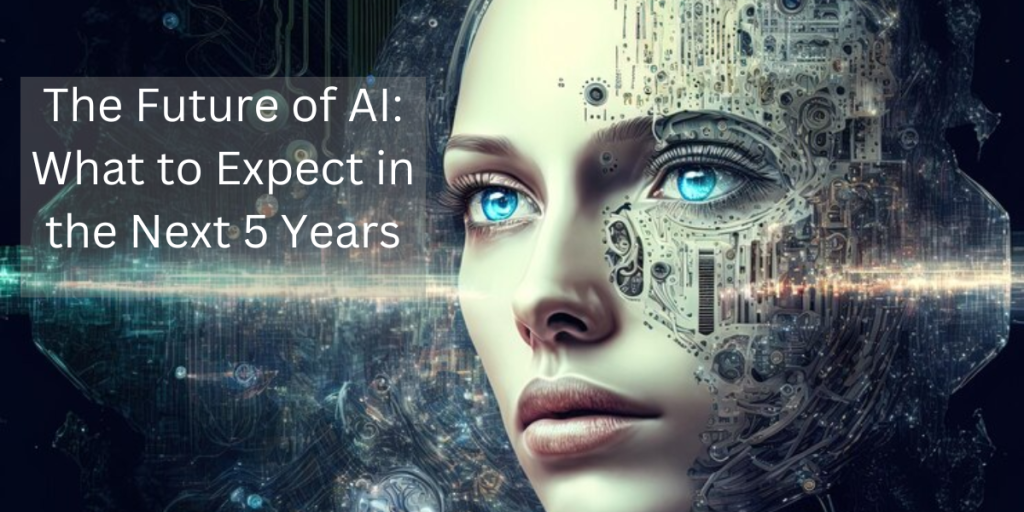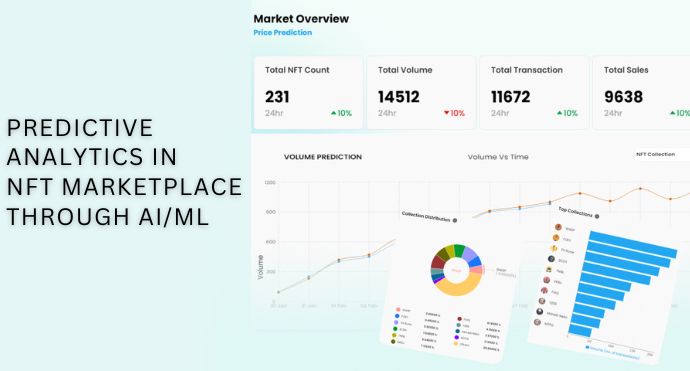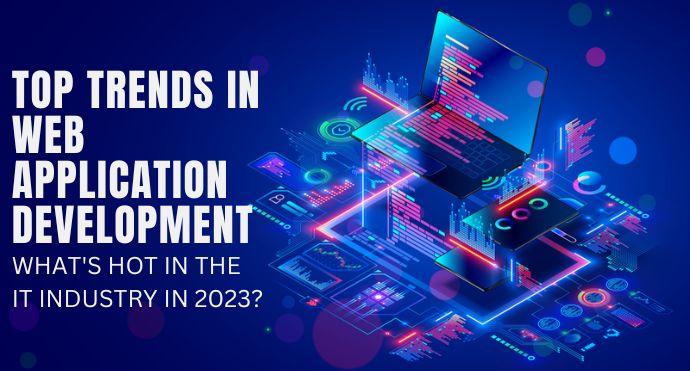Welcome to the world of AI, where robots learn, adapt, and think like humans. AI technology is transforming the way we live our lives, from virtual assistants in our phones to self-driving cars. With its ability to analyze vast amounts of data and make predictions, AI has become an essential tool in today’s world. The history of AI can be traced back to the 1950s, but it is only in the last decade that we have seen significant advancements in its capabilities. Today’s AI is more intelligent and sophisticated than ever before, thanks to machine learning algorithms and the rise of big data. With its potential to revolutionize industries like healthcare, education, and entertainment, AI is the way of the future.
Predictions for AI in Business and Workplaces
We all have heard about AI, but its implementation in workplaces and businesses is something that has caught global attention. Artificial intelligence has the capability of revolutionizing businesses and workplaces. It can take over repetitive and mundane tasks, give personalized suggestions for a business, and improve customer service. Let’s have a closer look at these predictions. Revolutionizing customer service: With chatbots and AI voice assistants, businesses can provide 24/7 customer support without any human intervention. Customers can interact with the chatbots using voice or text, and they will get an immediate response. This saves a lot of time and resources for the business. Automating routine tasks: The use of AI can reduce the workload on employees by automating routine tasks. For example, AI can scan resumes for job openings and select the best candidates for the job. It can also schedule appointments and meetings, thereby saving time and increasing the efficiency of the workplace. AI in HR and employment: AI can help businesses identify the best practices for hiring and retaining employees. It can help in identifying new candidates and matching their skills with the job requirements. AI can also help in employee training and development by giving personalized learning paths. AI in business and workplaces is on the rise, but it’s essential to understand that it’s not here to replace jobs. Instead, it’s here to make tasks easier and more efficient. By leveraging the power of AI, businesses can improve their operations and achieve success in their fields.
AI and Healthcare
The healthcare industry has been one of the main beneficiaries of AI technology. It has revolutionized the way medical diagnoses and treatments are carried out. AI can process and analyze vast amounts of patient data in a relatively short time, making it possible to provide more accurate diagnoses and treatment recommendations. AI-powered medical imaging has also made it easier for doctors to identify and treat conditions such as cancer, heart disease, and stroke. AI Assistants have also been used in healthcare. They include chatbots and virtual assistants that patients can interact with, to receive medical assistance or ask questions. AI Assistants also help in monitoring patients remotely, sending alerts to doctors in case of emergency. Despite the various advancements that AI has brought to the healthcare industry, concerns about data security and privacy have also emerged. Medical data is sensitive and personal, and the wrong use of this data can have damaging consequences. The use of AI technology in healthcare, therefore, requires strict compliance with data privacy regulations and ethical considerations. In the next five years, AI will continue to play a significant role in the healthcare industry. More AI-powered tools for diagnosis and treatment are expected to be developed alongside more AI Assistants. However, there is also a need for data security and privacy regulations to be implemented to prevent potential misuse of patient data.
AI in Education
As the use of AI continues to grow, it’s also playing a major role in education. One of the biggest benefits is providing individualized learning paths for students. With AI, students can receive customized lessons tailored to their individual learning styles and needs. No more one-size-fits-all curriculum. But AI is not just beneficial for students. It can also assist teachers and school administration. AI algorithms can track student progress and provide insights that help teachers better understand student needs. This leads to more effective teaching and improved student outcomes. And let’s not forget about accessibility for disabled students. AI technology can help create a more inclusive learning environment by providing the necessary accommodations for students with disabilities. This opens up a world of opportunities for students who may have been previously overlooked. But with all these benefits, we must also be mindful of the potential downsides. We must ensure that AI is used ethically and that we don’t become too reliant on it. After all, there’s no replacing the human touch in education. Overall, AI has the potential to revolutionize education in countless ways. Whether it’s through individualized learning paths, assisting teachers and school administration, or creating a more inclusive environment, AI is sure to have a major impact in years to come.
Ethical Concerns Surrounding AI
AI has been a topic of concern for many, particularly with regard to its ethical implications. The algorithms that power AI are created by humans, and as such, they can sometimes reflect our biases and perpetuate existing inequalities. For example, facial recognition technology has been shown to be less accurate in identifying women and people of color, which leads to greater discrimination and even criminalization of these groups. Another ethical concern surrounding AI is its potential use in autonomous weapons, which could become a moral hazard if left unchecked. These robots could be programmed to target and kill without human intervention, leading to disastrous consequences. Additionally, there is also the issue of political lobbying by tech companies seeking to monopolize the AI industry, which could lead to a lack of transparency and manipulation of the public. Apart from these concerns, there is also the fear that AI could replace jobs, leading to widespread unemployment and economic instability. While it is true that AI can automate routine tasks, the creation of new and more complex jobs will inevitably follow. However, there must be an effort to reskill and retrain workers to take on these new roles, or we risk creating a society of haves and have-nots. Overall, the development and proliferation of AI technology pose many ethical challenges that must be addressed by developers, policymakers, and society as a whole. By taking a proactive and human-centred approach to AI and its applications, we can ensure that its benefits are maximized while also mitigating its potential harms.
AI in Entertainment and Gaming
AI in entertainment and gaming has become a new trend. The ultimate goal is to create a more immersive experience for the end user. One example of AI in gaming is NPC (Non-Player Character) which can mimic human behaviour. Additionally, AI can also be used to personalize the experience of each player. AI analyzes the behavior of the player while playing the game and provides personalized recommendations.
Moreover, AI in entertainment has already proven its worth by creating virtual worlds, like in movies, which were not possible before. Production houses are adopting AI to reduce time and efforts which are required to create complex special effects. AI helps in generating 3D models, designing characters, and even predicting the movie’s success based on the script.
The future of AI in entertainment and gaming is quite vast. The integration of AI with the entertainment industry is expected to revolutionize the consumer experience by creating unique and personalized products.
AI in Real estate
Artificial intelligence (AI) has revolutionized the real estate industry by making the process of buying, selling, and renting properties more efficient. AI-powered tools analyze data, provide personalized recommendations, and predict future outcomes to help potential buyers and sellers make informed decisions. Additionally, AI chatbots assist agents by answering basic questions, scheduling appointments, and providing quick responses to clients. As technology continues to advance, the role of AI in real estate is expected to grow even more significant, ultimately creating a better experience for both buyers and sellers.
AI in the Banking
AI in the banking sector has been gaining popularity over recent years. With the help of AI, banks have been able to have personalization of services, high customer engagement, efficient credit scoring, and fraud detection and prevention. AI has enabled banks to improve their decision-making process. In addition to this, chatbots have also come into existence, which has helped banks in providing services 24/7 to their customers. The use of AI has not only benefitted banks but has also provided a seamless customer experience.
What can we do to ensure that AI is used for good?
There are a number of things that we can do to ensure that AI is used for good. These include:
- Investing in AI research: We need to invest in AI research so that we can develop AI systems that are safe, ethical, and beneficial to humanity.
- Developing AI safety guidelines: We need to develop AI safety guidelines that will help to ensure that AI systems are used safely and responsibly.
- Educating the public about AI: We need to educate the public about AI so that people are aware of its potential benefits and risks.
- Creating an AI ethics framework: We need to create an AI ethics framework that will help to guide the development and use of AI.
By taking these steps, we can help to ensure that AI is used for good and that it does not pose a threat to humanity.
Conclusion:
As we sail towards the future, AI technology’s pace of development is astonishing. We can expect AI to revolutionize our lives in several ways: from assisting doctors to enhancing customer services and from improving personalized learning to automating routine tasks. AI’s versatility has the potential to transform the way we live and work, making it crucial for us to find our place in a society that has AI at the forefront. However, we must remember that AI’s growth shouldn’t be viewed as a replacement for human intelligence but rather as an extension of it. As we progress, we need to find ways for AI and human intelligence to work together and complement each other, delivering solutions that lead to a better world.
The progress of AI technology is truly remarkable as we journey towards a new era. The impacts we can anticipate are extensive, ranging from improved customer services to personalized education. Automation of routine tasks and support for medical professionals, among other things, will give us more time to focus on human-centric concerns. As AI becomes increasingly versatile, we must examine our position in a society that values it. It is important to note, however, that AI should not be used in place of human intelligence but rather as a complement. The key concept is finding ways to meld AI and human intelligence to generate solutions that make the world a better place.



